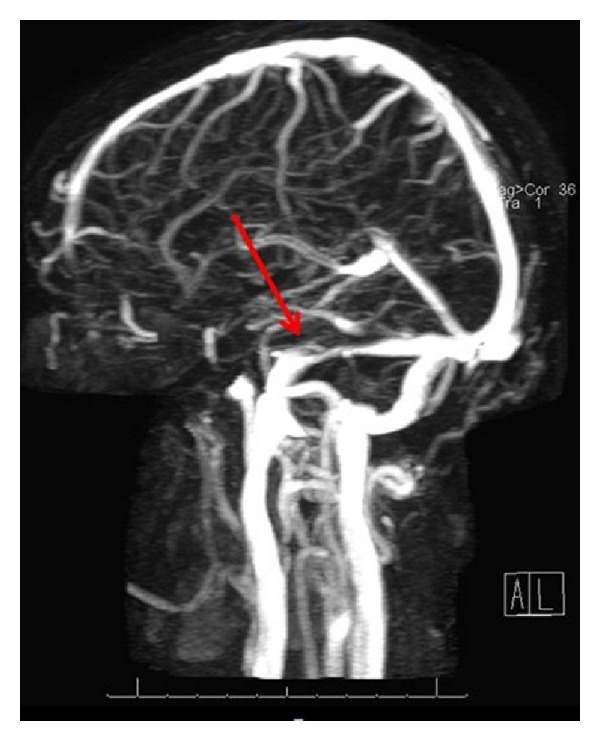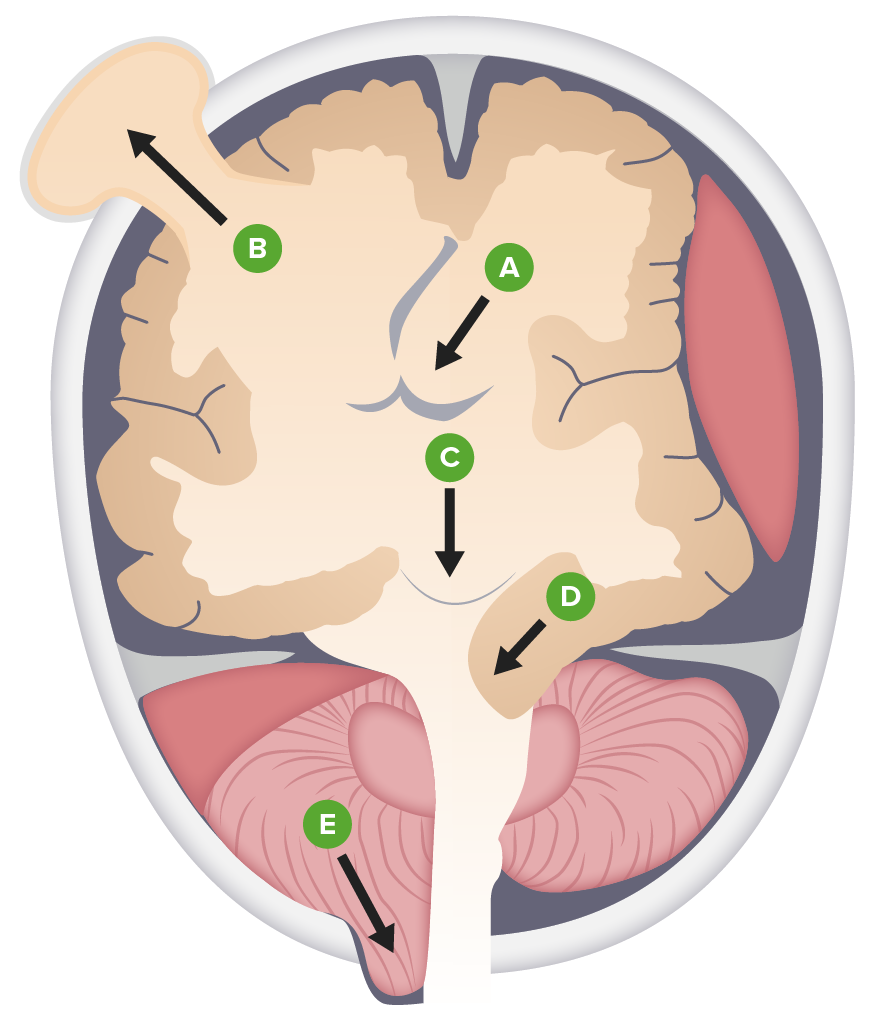Playlist
Show Playlist
Hide Playlist
Signs, Symptoms and Management of Intracranial Pressure (ICP)
-
Slides TraumaticBrainInjury Surgery.pdf
-
Download Lecture Overview
00:01 What are some signs and symptoms of hypertension and intracranial pressure space? Headache, vomiting, papilledema, and altered consciousness. 00:13 Remember, a patient who is experiencing intracranial hypertension or high ICPs may not be at all aware that they have increased ICPs. 00:22 Furthermore, if the patient is clinically deteriorating, these signs may not be present and yet the patient may have high ICPs. 00:34 I’d like to ask you a question. 00:36 What might alert you to an impending herniation of somebody who has intracranial hypertension? I’ll give you a second to think about this. 00:48 Cushing’s Triad is a classic triad that I would encourage you to commit to memory. 00:53 These signs demonstrate that the patient may be impending herniation. 00:58 They include high blood pressure, bradycardia, that’s the Cushing’s reflex, and abnormal breathing. 01:06 I would like to introduce you to a very important concept called the Monro-Kellie doctrine. 01:11 Speaking of the patient that has intracranial hypertension, what does that cause herniation? Well, the skull is actually a fixed space and it contains brain, blood, and CSF. 01:25 Given in a fixed space as one of these compartments increase in our situation, the brain due to an intracranial mass or bleed, the other compartments have to give. 01:38 This fixed space demonstrates to you why as bleeding causes increase mass effect on the brain that the brain may want to herniate through the foramen magnum near the brainstem. 01:52 This also explains why sometimes you get unilateral fixed pupils because one side of the brainstem may be herniating prior to the other. 02:01 It’s incredibly high-yield important to understand the mechanisms to treat intracranial hypertension. 02:07 One of the first maneuvers we try and may sound overly simple but by simply elevating the head of the bed past 30 degrees, one can improve venous return and decrease ICPs. 02:18 Next, you can transiently and try hyperventilation by breathing CO2 down, you induce a hypocapnic intracerebral vasoconstriction. 02:29 This, however, has a limited effect and has a downside of vasoconstriction, thereby also reducing the amount of oxygen delivered to the brain. 02:38 We also use osmotic whether it’s hypertonic saline or mannitol diuretics to decrease extracellular volume. 02:46 Sedation or induction of coma with phenobarbital is another option for patients who have worsening ICPs. 02:54 And although somewhat controversial, patients with severe ICPS, we can induce hypothermia. 03:00 Some important clinical pearls and high-yield information on traumatic brain injury. 03:05 Remember, review the different ICP-lowering maneuvers as it is both clinically practical as well as high yield on your examination. 03:16 And the Cushing’s reflex of hypertension, bradycardia, and abnormal breathing may be suggestive of impending herniation and rapid action is necessary. 03:30 Thank you very much for joining me on this discussion of traumatic brain injuries.
About the Lecture
The lecture Signs, Symptoms and Management of Intracranial Pressure (ICP) by Kevin Pei, MD is from the course Surgery: Trauma. It contains the following chapters:
- Signs and Symptoms of High ICP
- ICP Management
Included Quiz Questions
Which of the following is NOT a sign of elevated ICP?
- Hypotension
- Headache
- Vomiting
- Papilledema
- Altered level of consciousness
Which of the following best describes Cushing’s triad?
- Hypertension, bradycardia, abnormal breathing
- Hypotension, tachycardia, abnormal breathing
- Hypertension, tachycardia, abnormal breathing
- Hypotension, bradycardia, abnormal breathing
- Hypertension, bradycardia, absent breathing
Customer reviews
5,0 of 5 stars
| 5 Stars |
|
1 |
| 4 Stars |
|
0 |
| 3 Stars |
|
0 |
| 2 Stars |
|
0 |
| 1 Star |
|
0 |
The lecture provided clarification and important information in a direct and specific manner.





